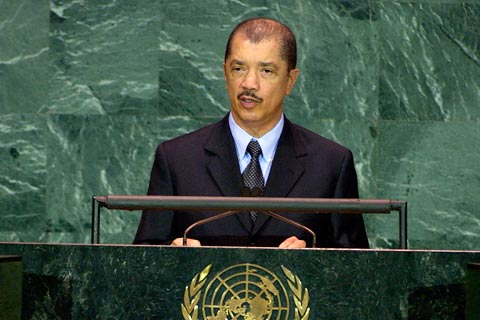NEW DELHI -- Seychelles is flooding, Mali is parched, Kiribati is eroding and the one bright spot would seem to be the fact that the United States president finally uttered the words "climate change."
 |
| Seychelles President James Michel |
Nations on the front lines of climate change expressed hesitant optimism for the U.S., as delegates gathered for The Energy and Resources Institute's 13th annual Delhi Sustainable Development Summit, whose goal is to tackle resource efficiency challenges.
Around the world, leaders pointed to the ways a changing climate was already affecting their nations.
Kiribati President Anote Tong told HuffPost his island nation is experiencing unprecedented coastal erosion, forcing some communities to relocate.
Seychelles President James Michel was unable to attend the summit because of recent flooding. As Seychelles Foreign Minister Jean-Paul Adam suggested, "We are very good fishermen, but we're not used to having to use our boats on the street."
Maldives Minister of Environment and Energy Dr. Mariyam Shakeela told a panel that extreme weather is now common. She added, "Dependence on unsustainable fossil fuel-based energy increases global warming and threatens climate security, which in turn affects our biodiversity, food and water security through droughts, floods and extreme weather events."
African Development Bank President Donald Kaberuka told a small group of journalists, "Seasons have become completely unpredictable. Farmers no longer know when to plant." Citing 2011's Horn of Africa drought as an example, he explained that "for farmers who live on nature, who live on a good understanding of seasons, this is a disaster." More
